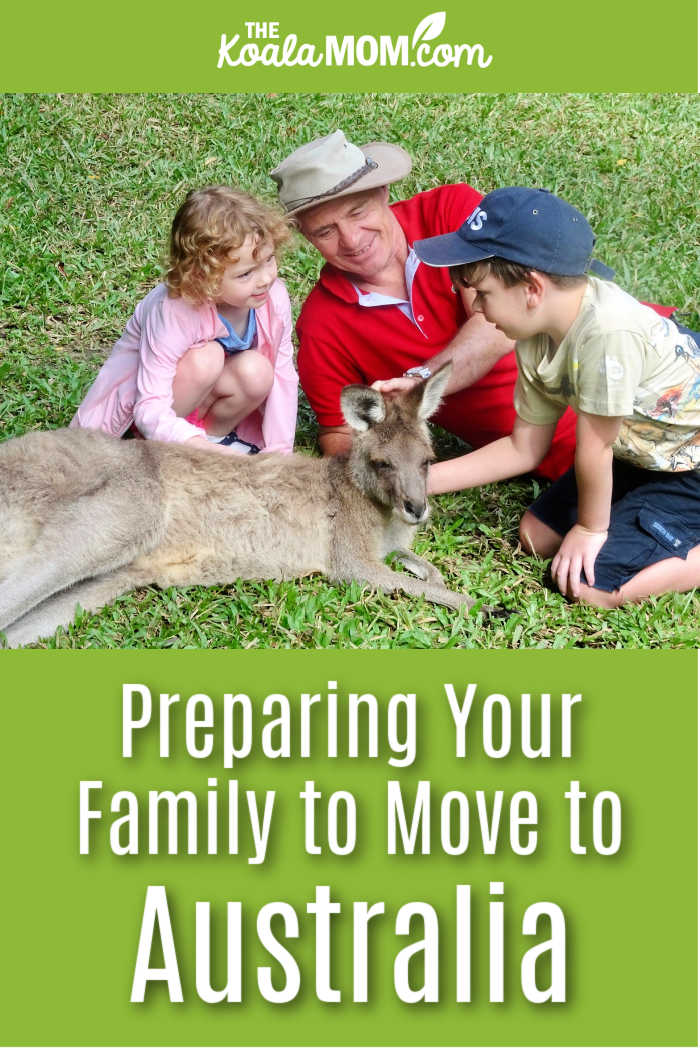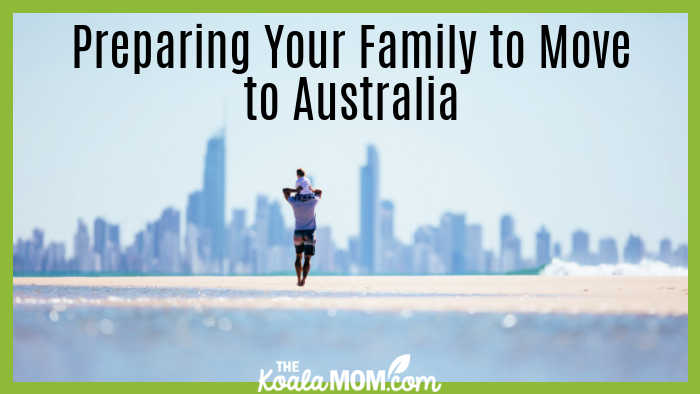Australia, with its stunning landscapes, diverse culture, and excellent quality of life, is a dream destination for many families looking to relocate. However, the process of moving to a new country, especially with your family, can be both exhilarating and challenging. This comprehensive guide will help you navigate the journey of preparing your family for the move to Australia.
From visas and housing to education and healthcare, we will cover the essential aspects to ensure a smooth transition for you and your loved ones.

Visa and Immigration
One of the initial steps in planning your move to Australia is understanding the visa and immigration requirements. Australia offers various visa options for family migration, including partner visas, child visas, and parent visas. Each visa category has specific criteria and application processes, so it’s crucial to research and choose the one that best suits your family’s situation.
Working with a reputable immigration agent or consulting the Australian Department of Home Affairs can provide valuable guidance through this process. Be prepared for the documentation, health, and character requirements that may apply to your visa application, and allow ample time for processing.
Choosing the Right Destination
Australia is a vast country with diverse cities and regions, each offering unique opportunities and lifestyles. Researching the destination that aligns with your family’s needs and preferences is essential. Consider factors like job prospects, education options, climate, and lifestyle when making your decision.
Melbourne and Sydney are popular choices for their vibrant cultures and economic opportunities, while Brisbane and Perth offer a more relaxed pace of life. Regional areas like Adelaide and Tasmania provide a quieter and family-friendly environment. The Sunshine Coast offers stunning scenery and a wealth of outdoor activities. Weigh the pros and cons of each location to determine the best fit for your family’s future.
Legal and Administrative Matters
Legal and administrative matters are crucial considerations when preparing your family for a move to Australia, and they extend to various aspects of your relocation. Among these considerations, you’ll need to ensure that you have all the necessary documentation in order, including passports and visas.
If you plan to drive in Australia, understanding the requirements for obtaining a driver’s license is essential. This may involve taking a driving test or transferring your existing license, which can vary depending on your circumstances. If you’re planning to purchase a vehicle in Australia, you can explore options with local dealerships, including Ford dealers in Brisbane, Sydney, Canberra, or Melbourne, to address transportation needs and meet any related legal and administrative requirements in your new location.
Moreover, familiarize yourself with your visa category’s legal and administrative requirements to ensure compliance. Being well-prepared on these fronts will help you navigate the legal and administrative aspects of your move seamlessly.
Housing and Accommodation
Securing suitable housing is a critical aspect of your move to Australia. The housing market varies across cities and regions, so it’s essential to research and understand local conditions. Decide whether renting or buying is the best option for your family. Renting can provide flexibility in the initial stages of your move, allowing you to explore different neighborhoods and housing styles. If you decide to buy, take into account factors like property prices, mortgage rates, and proximity to essential amenities. Working with a local real estate agent can help you find the right accommodation that meets your family’s needs.
Education and Schools
If you have school-aged children, the Australian education system will be a significant consideration. Familiarize yourself with the education system, which includes public schools, private schools, and international schools and homeschooling. Research the schools in your chosen location, considering factors like curriculum, extracurricular activities, and school reputation.
Enrolling your children in schools promptly is crucial to ensure a smooth transition. Be prepared to provide the necessary documentation, including school records, medical records, and visa-related information, to facilitate the enrollment process. Get involved in school activities and connect with other parents to establish a support network for your family and children.
For families with young children, finding appropriate childcare and preschool options is essential. Research childcare centers, preschools, and early learning programs in your chosen location. Understand the enrollment process, including eligibility requirements and waiting lists, if applicable. Supporting your children’s transition to a new childcare facility involves open communication and creating a positive and reassuring environment.
Healthcare, Insurance and Finances
Access to quality healthcare is a fundamental consideration when relocating your family to Australia. Australia has a universal healthcare system known as Medicare, which provides essential medical services to Australian citizens and eligible residents. However, it’s advisable to have private health insurance to cover additional services and avoid long waiting times for elective procedures.
Research and compare health insurance providers to find a plan that suits your family’s needs and budget. Ensuring that your family has appropriate health coverage will give you peace of mind and access to medical care when necessary.
Moving to a new country requires careful financial planning to manage your family’s expenses and maintain financial stability. Research currency exchange rates and banking options in Australia to understand how to manage your finances effectively. Create a budget that accounts for living expenses, housing costs, education fees, healthcare, and savings. Consider your income sources, whether through employment, investments, or remote work opportunities. Working with a financial advisor can help you navigate the financial aspects of your move and make informed decisions about managing your family’s finances in Australia.
Cultural Adjustment and Language
Preparing your family for cultural adjustment is vital to ensure a smooth transition. Australia is a multicultural society, and while English is the primary language, you may encounter diverse cultural practices and languages.
Encourage your family members to learn about Australian customs, etiquette, and social norms. Read books and watch movies about Australia’s history; like Canad and the US, it was colonized by Britain but there are subtle differences. Take time to visit local museums and art galleries to learn more about Australia and its peoples.
Language proficiency is valuable, so consider enrolling in English language courses if necessary. Embrace the local culture by participating in community events and connecting with local residents. Building cultural awareness and sensitivity will help your family integrate more effectively into Australian society.
Healthcare and Emergency Preparedness
While Australia is known for its safety and high-quality healthcare system, it’s essential to be prepared for emergencies. Familiarize yourself with emergency services contact information, such as local hospitals and emergency hotlines. Assemble a comprehensive first-aid kit to address minor injuries and illnesses. Stay informed about local healthcare resources, including nearby hospitals, clinics, and pharmacies. Having a well-prepared healthcare and emergency plan ensures your family’s well-being and peace of mind.
Social Integration and Community
Building a sense of community and social support is vital for your family’s well-being in a new country. Consider joining local community groups, clubs, or organizations that align with your interests and values. Attend community events and engage with your neighbors and fellow residents to establish meaningful connections. Embrace the Australian way of life by participating in outdoor activities, sports, and cultural events. Developing a social network not only enriches your experience but also provides valuable support and a sense of belonging for your family.
Maintaining Family Well-being
Balancing work, family life, and the challenges of relocation can be demanding. Prioritize family well-being by creating a harmonious and supportive environment. Establish open lines of communication with your family members to address their concerns and needs. Encourage regular family activities and bonding experiences to strengthen your connections. Seek professional support and counseling services if necessary to navigate challenges and maintain a healthy family dynamic.

Relocating your family to Australia is a significant and life-changing decision, but with thorough preparation and planning, it can be a rewarding experience. Understanding the visa and immigration requirements, choosing the right destination, securing suitable housing, and addressing education, healthcare, and financial matters are essential steps. Cultural adjustment, legal considerations, emergency preparedness, and social integration also play pivotal roles in ensuring a successful transition.
By prioritizing your family’s well-being and taking proactive steps, you can look forward to a fulfilling and enriching life in Australia, enjoying the opportunities and adventures that this vibrant country has to offer.

No Responses Yet